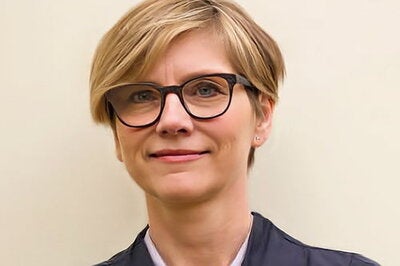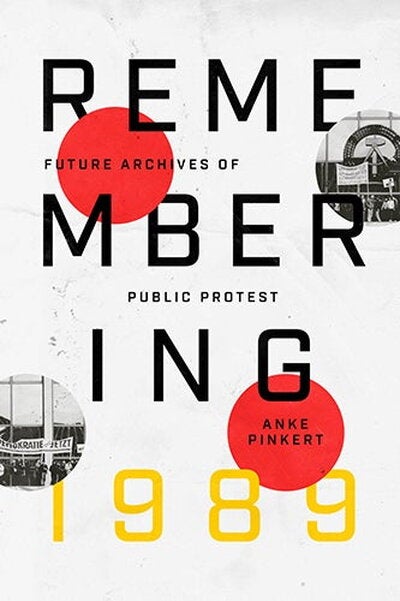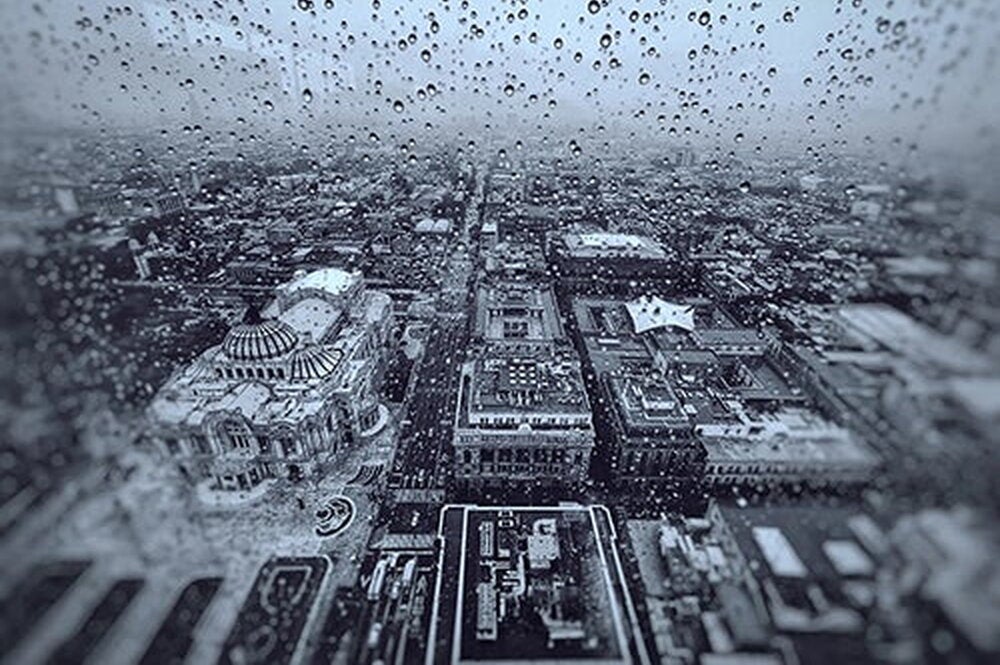

Anke Pinkert, professor and head of the Department of Germanic Languages & Literatures, recently published “Remembering 1989: Future Archives of Public Protest” (University of Chicago Press). The book explores archives of untelevised protests, illegally printed petitions by Church leaders, audio recordings of dissident meetings, and interview footage with military troops to uncover the history of Eastern European uprisings.
She answered some questions from the College of LAS about her book.
What are the main themes of your new book?
My latest book explores the months between the outbreak of protests in East Germany in 1989 and the country’s unification in 1990—a period often overshadowed by the dominant narrative of the Berlin Wall’s fall. The book draws on overlooked archives to reveal how ordinary citizens experimented with direct democracy and how those aspirations, though largely unfulfilled, still offer valuable lessons for today.
What inspired this project?

My earlier book, “Film and Memory in East Germany,” focused on how film shaped public memory of the Holocaust and World War II. Across my work, I’ve been interested in how societies remember difficult transitions and how public memory can be a political act. More recently, my teaching and work with the Education Justice Project—especially teaching about the Holocaust in prison—have pushed me to think about how we recover and activate ideas from the past for the future. This book continues that thread, but with an even greater focus on the possibilities for social change.
I wanted to challenge the common story that frames 1989 solely as a triumph of Western democracy and capitalism. Growing up in East Berlin, I witnessed firsthand the hope and creativity of grassroots movements that envisioned a more just, collaborative society—ideals that were quickly sidelined after unification. By revisiting these moments, I hope to recover forgotten aspirations and provide context for current political shifts, including the rise of right-wing parties in Eastern Germany. Personally, my experiences during that transformative time deeply shaped my understanding of surveillance, freedom, and the ongoing search for social justice.
Did your work as a professor influence your book?
Absolutely—I find teaching, research, and writing deeply interconnected. Teaching about Eastern Europe and the Cold War has meant challenging students’ assumptions and encouraging them to think critically about freedom and memory. More recently, as students have less direct connection to 1989, we’ve been able to approach the material with fresh eyes. This dynamic inspired the book’s concept of a “future archive”—reassembling forgotten voices and questioning dominant narratives. Bringing archival materials into the classroom has also sparked discussions about how memory is shaped by media and technology, both past and present.
How long did the research and writing process take?
The book took about three years to write, plus two more for publication. Research involved trips to German archives, museums, and memorial sites, where I uncovered unsorted materials from the citizens’ movement—many still in boxes decades later. It was moving to read citizens’ letters, manifestos, and roundtable discussions from 1989. A surprising and rewarding aspect was discovering how Turkish Germans and East Germans collaborated during this period, a story rarely told. Balancing my personal experiences with broader historical analysis was both challenging and enriching.
Did this project inspire any new ones?
Yes, I’m interested in writing a more personal history that weaves together my experiences from East Berlin to Illinois, including my work with the Education Justice Project. My scholarship and personal journey have always focused on the idea of “walls”—whether physical or metaphorical—and how we might make them more permeable, or even dismantle them, in pursuit of justice and understanding. My new academic book in-progress, “Memory Ecologies,” examines seawater as medium and archive in contexts of forced migration.
What is the main takeaway you want readers to have?
History is never fixed—it’s shaped by our choices and attention. Small actions and voices matter, especially when confronting moments of change. I hope readers feel encouraged to stay alert, engage with the past, and participate in shaping a more just future. Even in times of uncertainty, there’s hope in collective action and dialogue across differences.
